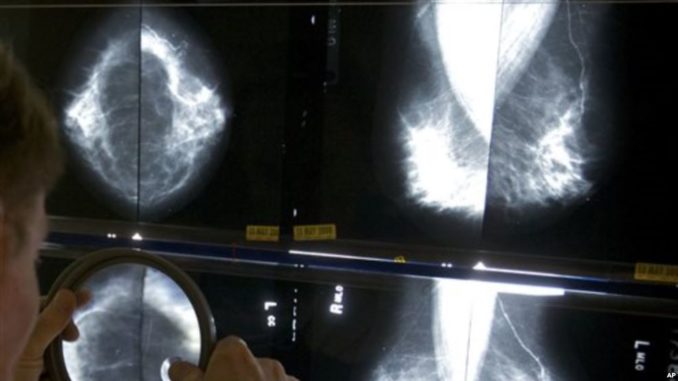
Research has found that cancer cells can spread unseen, before a tumor develops, and leave a ticking time bomb in the body. But the scientists who made the discovery say it soon may be possible for doctors to target these “silent” cancer cells and kill them before they can kill the patient.
The researchers said the ability of these early cancer cells to spread while remaining silent for years explains why a patient can die a long time after being treated for what was thought to be a benign tumor, or even no tumor at all.
Experts say 5 percent to 8 percent of cancer patients die of what’s called cancer of unknown primary, or CUP. This phenomenon occurs when the disease metastasizes without doctors having found a primary tumor.
In other cases, cancer can be successfully treated but return decades later. For instance, small growths can be surgically removed from breast cancer patients, but the women die of the disease 20 or 30 years later.
Working with mouse models of breast cancer, U.S. and German researchers discovered biomarkers to identify these abnormal, silent cancer cells that travel from the site of an early tumor and settle in the bone marrow or lungs.
These biomarkers can show whether the cells are seeds of metastasis, suggesting it might be possible to give people with cancer a definitive prognosis.
‘Very difficult to treat’
Oncologist Julio Aguirre-Ghiso at Mount Sinai’s Icahn School of Medicine in New York was the lead author of one of two papers on the spread of silent cancer cells published in the journal Nature.
He said metastatic cancers “are very difficult to treat, and usually it’s because we use information from the primary tumor.” Even if one of the metastatic growths is different from the primary tumor, he said, “that may be the killer. Right? And we just didn’t know that. So this just opens our eyes into focusing more on the specific biology of the metastasis” and treating such growths “in a more personal way.”
Aguirre-Ghiso said that when CUP is diagnosed, doctors usually take a watch-and-wait approach. If even one cancer cell is found residing in bone marrow, he said, the prognosis is usually poor.
But the discoveries by his team and scientists at University of Regensburg in Germany may lead to a shift in the way cancer is treated, he said.
“I’m optimistic, because now we know we have a very long window of opportunity to treat the patients and prevent metastasis,” Aguirre-Ghiso said.
The scientists are working with drug manufacturer Eli Lilly and Company on the development of a drug that kills these metastatic, aggressive silent cells.
Aguirre-Ghiso predicted that in the next four years, drugs will be available to treat wandering, cancerous cells emerging from “benign” tumors or unknown sites in the body .
And, he said, doctors will have tools to tell whether a migrating cancer cell is active or dormant. If it turns out that even one silent cell is malignant, patients can be put on therapies that might actually cure the disease. That’s something that has not happened before.